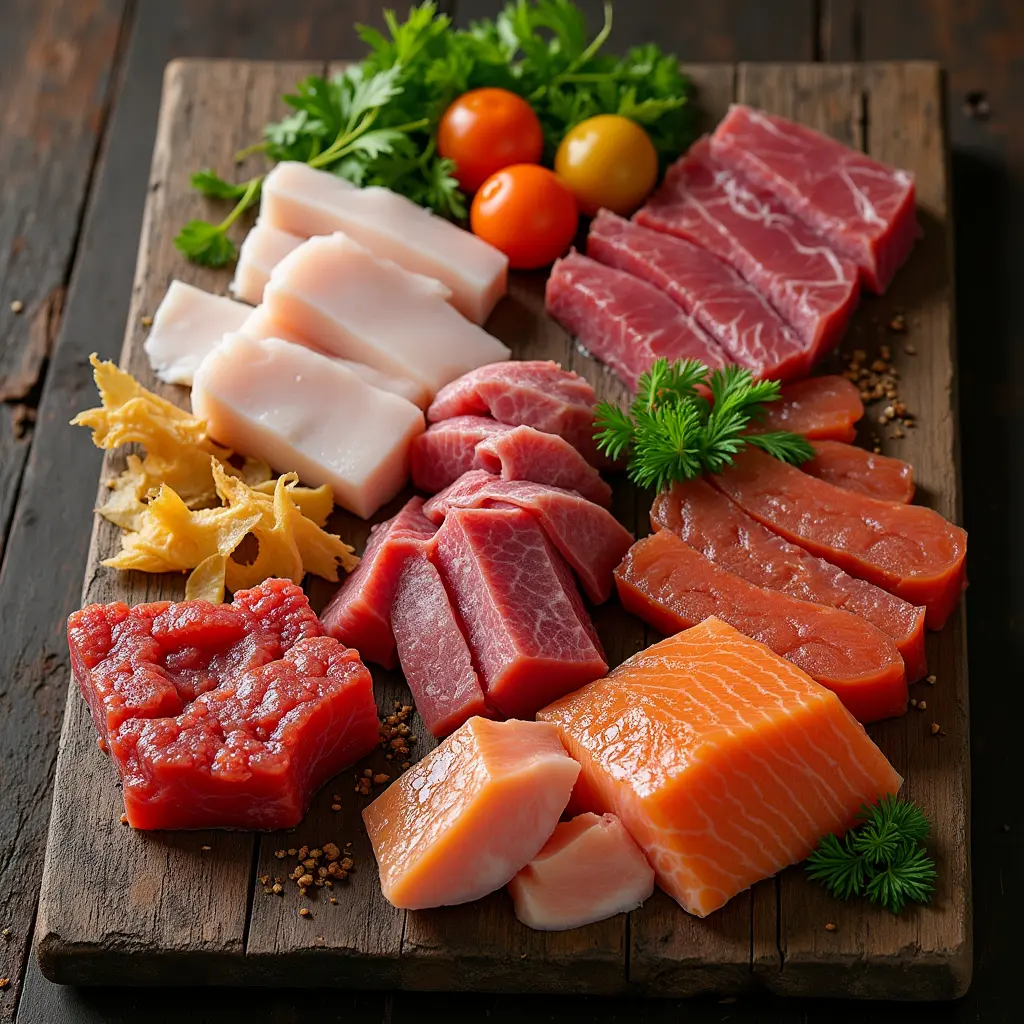Table of Contents
Introduction
Understanding the Importance of Proper Nutrition for Cats
Proper nutrition forms the foundation of a healthy and happy life for cats. It not only fuels their daily activities but also plays a pivotal role in preventing and managing chronic health conditions. Cats, being obligate carnivores, have unique dietary needs that demand a balance of proteins, vitamins, and essential nutrients. For those suffering from urinary insufficiency, a targeted diet can alleviate symptoms and improve quality of life.
How Urinary Insufficiency Impacts a Cat’s Health
Urinary insufficiency compromises a cat’s ability to filter waste and maintain fluid balance, leading to toxin buildup in the bloodstream. This condition can result in lethargy, poor appetite, dehydration, and susceptibility to urinary tract infections (UTIs). Addressing these issues through diet is not merely supportive but integral to managing the condition effectively.
What Is Urinary Insufficiency in Cats?
Common Causes of Urinary Insufficiency
Urinary insufficiency often stems from chronic kidney disease, urinary tract obstructions, or genetic predispositions. Aging is another significant factor, as older cats are more prone to kidney-related issues. Environmental stressors and an imbalanced diet can also exacerbate the condition.
Symptoms and Early Warning Signs
Recognizing early signs is crucial. Symptoms may include frequent urination, straining in the litter box, blood in the urine, or accidents outside the litter box. Behavioral changes, such as increased thirst or a sudden disinterest in food, may also indicate underlying issues.
Diagnosis and Veterinary Recommendations
A veterinarian typically diagnoses urinary insufficiency through blood tests, urinalysis, and imaging studies. Once diagnosed, they may recommend dietary modifications, increased hydration, or medications to manage the condition.
The Role of Diet in Managing Urinary Insufficiency
Why Diet Matters for Cats with Urinary Issues
A carefully crafted diet can mitigate the symptoms of urinary insufficiency by reducing the strain on the kidneys and maintaining the pH balance of the urine. Proper hydration, combined with a low-sodium and low-phosphorus diet, is essential for managing this condition.
Key Nutritional Needs for Cats with Urinary Insufficiency
Cats with urinary issues require high-quality protein, increased moisture content, and controlled levels of minerals like magnesium and phosphorus. Ensuring these elements in their diet helps reduce urinary crystals and promotes overall urinary health.
Benefits of a Homemade Diet for Cats with Urinary Insufficiency
Customized Nutrition for Specific Health Needs
A homemade diet allows for complete control over ingredients, enabling pet owners to tailor meals to their cat’s unique health requirements. This customization ensures that no unnecessary fillers or harmful additives are included.
Control Over Ingredients and Quality
Unlike commercial diets, homemade meals provide transparency in sourcing ingredients. Pet owners can prioritize organic and high-quality proteins, ensuring their cat consumes only the best.
Reducing the Risk of Harmful Additives
Many store-bought pet foods contain preservatives, artificial flavors, and excess salts that can aggravate urinary issues. A homemade diet eliminates these risks, focusing on wholesome and beneficial ingredients. https://www.vetpetdiet.com/treat-for-pets-10-healthy-homemade-recipes/
Key Nutritional Components of a Balanced Diet
High-Quality Protein Sources
Protein is the cornerstone of a cat’s diet. Options such as chicken, turkey, and fish provide essential amino acids that support muscle maintenance and overall health.
The Role of Moisture in Cat Food
Cats often lack a natural thirst drive, making moisture-rich diets crucial. Wet food or broths can help maintain hydration levels, reducing the risk of urinary stone formation.
Essential Vitamins and Minerals
Incorporating vitamins like B-complex and minerals such as potassium supports kidney function and overall metabolic health. However, levels should be carefully monitored to avoid imbalances.
Foods to Include in a Homemade Diet
Recommended Protein Options: Chicken, Turkey, and Fish
Lean meats such as chicken and turkey provide digestible protein without overloading the kidneys. Fish, rich in omega-3 fatty acids, offers anti-inflammatory benefits.
Beneficial Vegetables and Grains for Cats
Cooked carrots, pumpkin, and small amounts of rice or oats can add fiber and energy. These should be given in moderation to avoid upsetting the carnivorous balance.
Safe Supplements to Support Urinary Health
Supplements like cranberry extract, omega-3 oils, and probiotics can support urinary tract health and improve digestion. Always consult a vet before introducing supplements.
Foods to Avoid for Cats with Urinary Insufficiency
Ingredients That Can Worsen Urinary Problems
Avoid fish-based meals with high magnesium content, as they may promote struvite crystal formation. Similarly, steer clear of grains that can alter urine pH unfavorably.
Harmful Additives and Preservatives to Watch Out For
Artificial preservatives like BHA and BHT can stress the kidneys. Opt for natural alternatives to keep your cat’s diet free of these compounds.
The Dangers of High Sodium and Magnesium Levels
Excessive sodium leads to dehydration, while high magnesium levels can contribute to stone formation. Both should be strictly regulated in a homemade diet.

Step-by-Step Guide to Preparing Homemade Cat Food
Sourcing Fresh and High-Quality Ingredients
Choose human-grade, organic ingredients whenever possible. Local farmers’ markets or trusted suppliers are excellent sources for fresh produce and meat.
Cooking Methods That Preserve Nutritional Value
Steam or boil proteins and vegetables to retain their nutrients. Avoid frying or using oils that may upset a cat’s sensitive digestive system.
Tips for Properly Storing Homemade Cat Food
Store meals in airtight containers and refrigerate them promptly. Freeze portions to maintain freshness and avoid spoilage.
Sample Recipes for Cats with Urinary Insufficiency
Simple Chicken and Rice Recipe
Combine boiled chicken breast, cooked rice, and a small amount of pumpkin for a gentle, digestible meal. https://thenoshproject.com.au/recipes/cat-chicken-rice-bowl/
Fish-Based Meal Packed with Omega-3s
Bake salmon or mackerel with a touch of parsley and mix it with steamed carrots for added fiber.
Hydrating Stew Recipe for Optimal Urinary Health
Create a stew using shredded chicken, low-sodium chicken broth, and pureed zucchini for a moisture-rich dish.
How to Ensure Nutritional Balance in Homemade Diets
Consulting a Veterinary Nutritionist
Work with a veterinary expert to ensure your cat’s diet meets all nutritional requirements without any deficiencies.
Using Online Nutritional Calculators for Cats
Leverage reliable tools to calculate the appropriate portions of protein, carbs, and fats in your recipes.
The Importance of Regular Health Check-Ups
Schedule routine visits to monitor your cat’s progress and make necessary dietary adjustments.
Hydration and Its Impact on Urinary Health
Why Cats Need Extra Hydration
Hydration helps flush toxins from the kidneys and prevents the formation of urinary crystals. Cats on dry food often struggle to maintain adequate hydration levels.
Creative Ways to Encourage Cats to Drink More Water
Consider water fountains, flavored broths, or adding ice cubes to water bowls to entice cats to drink more.
Foods That Naturally Boost Hydration
Moisture-rich foods like cucumbers and bone broths can supplement your cat’s water intake effectively.
Monitoring Your Cat’s Health on a Homemade Diet
Recognizing Signs of Improvement
Watch for increased energy, a healthier coat, and improved litter box habits as indicators of success.
Tracking Weight and Energy Levels
Maintain a log of your cat’s weight, appetite, and behavior to ensure the diet meets their needs.
Adjusting the Diet Based on Feedback from Your Cat
Every cat is unique. Tailor the diet based on how your cat responds to ensure optimal results.
Common Mistakes to Avoid When Feeding Homemade Diets
Overlooking Nutritional Balance
Neglecting to balance proteins, carbs, and fats can lead to deficiencies.
Relying on Unsafe Ingredients
Double-check all ingredients to ensure they are cat-safe and non-toxic.
Ignoring Portion Control
Overfeeding can lead to obesity, while underfeeding can result in malnutrition.
Frequently Asked Questions About Homemade Diets
Can Cats Transition Easily to a Homemade Diet?
Gradual transitions are best to prevent digestive upset. Mix homemade meals with their current food over a week.
How Often Should I Feed My Cat Homemade Meals?
Divide meals into smaller, frequent portions to mimic their natural eating habits.
Is It Safe to Add Supplements Without Veterinary Advice?
Always consult a vet before introducing supplements to avoid potential overdoses or adverse reactions.
Conclusion
The Long-Term Benefits of a Balanced Homemade Diet
Homemade diets provide cats with tailored nutrition, improving their overall health and longevity.
Empowering Pet Owners to Take Control of Their Cat’s Health
Preparing homemade meals allows owners to actively contribute to their pet’s well-being.
Encouragement to Consult a Veterinarian for Personalized Advice
A partnership with your vet ensures the diet is not only balanced but also safe and effective for managing urinary insufficiency.




